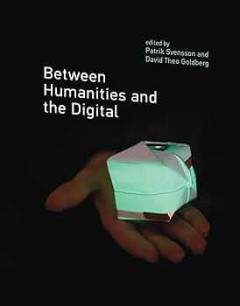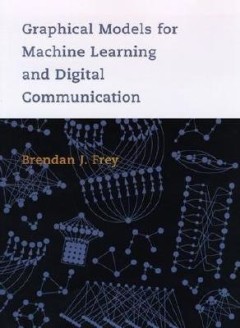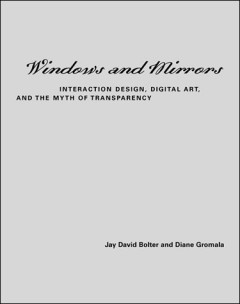Filter by

Between Humanities and the Digital
"Like most academic discourses, the Digital Humanities are a conversation in flux. Some would argue that the Digital Humanities are already a well-established field, pointing to the 20-year history of Humanities Computing. Others (me) see a new breed of academic with skills in both technology and the traditional humanities (the Platform Studies and Software Studies series), while others might i…
- Edition
- -
- ISBN/ISSN
- 9780262328364
- Collation
- 1 online resource (xii, 574 pages) :illustrations
- Series Title
- -
- Call Number
- -

Graphical models for machine learning and digital communication
"A Bradford book."Content DescriptionOCLC-licensed vendor bibliographic record.
- Edition
- -
- ISBN/ISSN
- 0585024413
- Collation
- 1 online resource (xiii, 195 pages) : illustrations
- Series Title
- Adaptive Computation and Machine Learning series
- Call Number
- -

https://direct.mit.edu/books/book/2413/Windows-and-MirrorsInteraction-Design-…
The experience of digital art and how it is relevant to information technology.In Windows and Mirrors: Interaction Design, Digital Art, and the Myth of Transparency, Jay David Bolter and Diane Gromala argue that, contrary to Donald Norman's famous dictum, we do not always want our computers to be invisible "information appliances." They say that a computer does not feel like a toaster or a vacu…
- Edition
- -
- ISBN/ISSN
- 9780262268998
- Collation
- 1 online resource (xi, 182 pages) :illustrations.
- Series Title
- -
- Call Number
- -

Visions of a digital nation :market and monopoly in British telecommunications
"Explores how the British telecom system shaped late social democracy and early neoliberalism"--OCLC-licensed vendor bibliographic record.
- Edition
- -
- ISBN/ISSN
- 9780262375528
- Collation
- 1 online resource.
- Series Title
- -
- Call Number
- -

The future of competitive strategy :unleashing the power of data and digital …
"A guide for business leaders to understand how to make use of data for competitive advantage"--OCLC-licensed vendor bibliographic record.
- Edition
- -
- ISBN/ISSN
- 9780262370196
- Collation
- 1 online resource.
- Series Title
- -
- Call Number
- -

A tale of two towers :gigantism in architecture and digital culture
A cultural history of gigantism in architecture and digital culture, from the Eiffel Tower to the World Trade Center. The gigantic is everywhere, and gigantism is manifest in everything from excessively tall skyscrapers to globe-spanning digital networks. In this book, Henriette Steiner and Kristin Veel map and critique the trajectory of gigantism in architecture and digital culture--the conver…
- Edition
- -
- ISBN/ISSN
- 9780262358330
- Collation
- 1 online resource (248 pages).
- Series Title
- -
- Call Number
- -

Social Media in Higher Education Case Studies, Reflections and Analysis
How does social media affect working life in Higher Education? How are universities harnessing its power to aid student learning? This innovative collection brings together academics and those working in professional services to examine these questions and more. The diverse and expert contributors analyse the many ways social media can be used to enhance teaching and learning, research, profess…
- Edition
- -
- ISBN/ISSN
- -
- Collation
- -
- Series Title
- -
- Call Number
- -

Cracking Facebook: The Importance of Understanding Technology-Based Communica…
This book presents a Facebook study on members of the Cusp Generation, or those born before the "great digital divide" of 1995. This delineation allows for a discussion on the possible socio-cultural implications of Facebook use for people of all ages. Members of the Cusp Generation are in a unique position as "part digital natives" to easily acquire and use new media technologies, while being …
- Edition
- 1
- ISBN/ISSN
- 9789463002110
- Collation
- X, 154
- Series Title
- Youth, Media, & Culture Series
- Call Number
- 384
 Computer Science, Information & General Works
Computer Science, Information & General Works  Philosophy & Psychology
Philosophy & Psychology  Religion
Religion  Social Sciences
Social Sciences  Language
Language  Pure Science
Pure Science  Applied Sciences
Applied Sciences  Art & Recreation
Art & Recreation  Literature
Literature  History & Geography
History & Geography